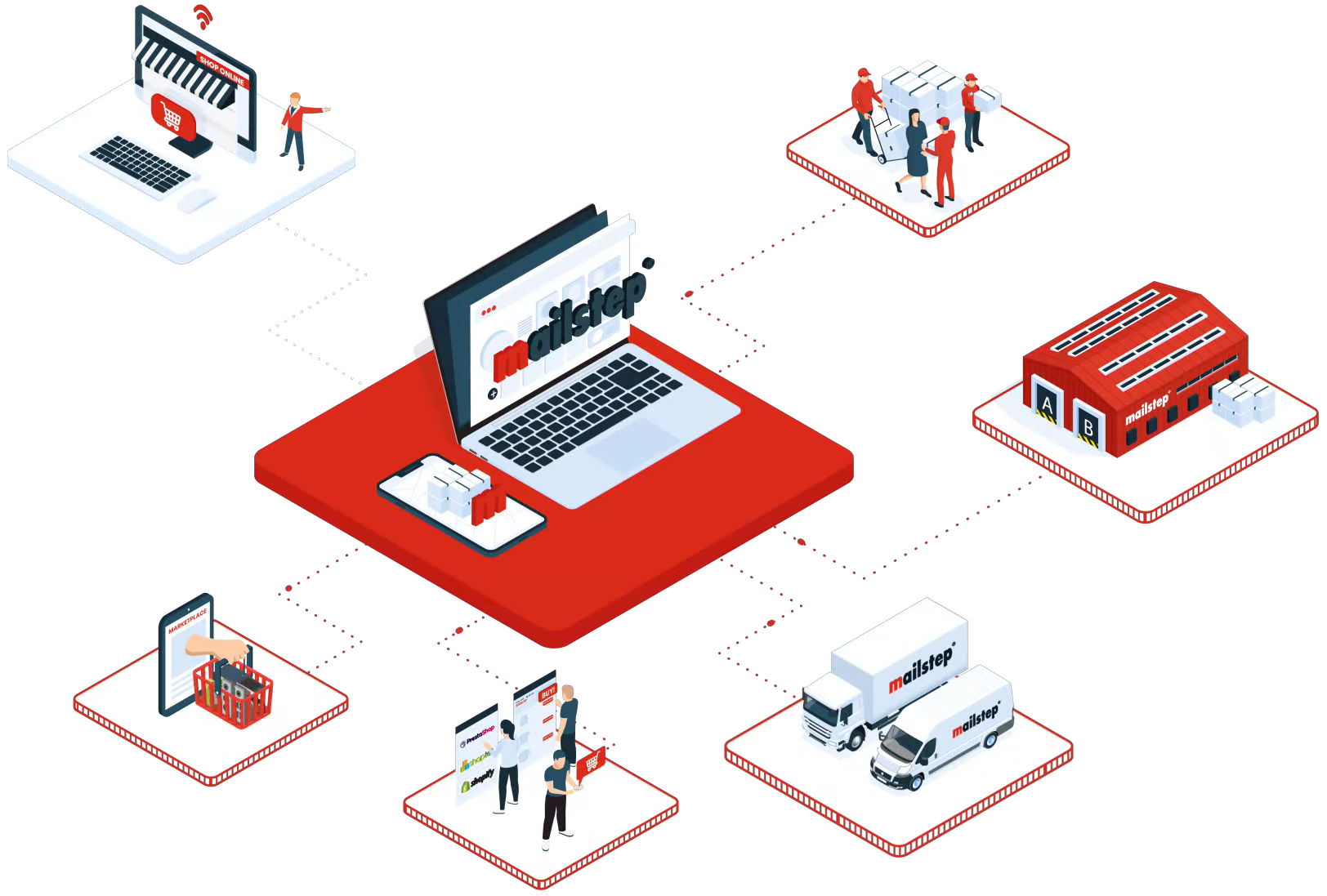When you handle logistics for hundreds of e-shops, you need a reliable, modern infrastructure that ideally also provides the data you need for invoicing. That’s exactly what we delivered for Mailstep, whose infrastructure is now modern, transparent, and resilient thanks to our DevOps.


The Czech company Mailstep processes more than 30,000 e-shop parcels every day. Through its own application, it manages integrations with various e-commerce platforms and carriers, and, most importantly, complete order fulfillment for online stores. In 2023, the company hit the limits of its infrastructure, which was unnecessarily complex, fragmented, and outdated. Mailstep turned to us, and within two weeks we had taken over DevOps and started working on optimization.

“External collaborations are often a gamble, especially in an area that’s as sensitive as DevOps, where the partner essentially gets the ‘keys to the castle’. With Cookielab, we’ve always felt that our security and privacy come first. They helped us set up processes for managing developer and technical role access to AWS resources, and they truly took ownership of our infrastructure – so much so that it felt like they were part of our internal team.”
CTO
When we took over DevOps, our first step was to analyze the state of the infrastructure. We discovered that Mailstep had around 26 different AWS accounts even though everything served the same purpose, i.e. managing fulfillment. On top of that, it was running on relatively old versions of various systems. We decided to consolidate the infrastructure to avoid technical issues and reduce overall DevOps and development costs.
Our first move was to consolidate AWS accounts from more than twenty down to four. Two handle technical matters, one provides an overview of the infrastructure’s status, and the fourth manages billing, domain administration, and more. We completed the final adjustments in October 2024, roughly 18 months after taking over the infrastructure.
We migrated data without disrupting Mailstep’s services for its clients. We also prepared a unified dashboard, giving everyone a clear view of the infrastructure status, third-party service integrations, and more.
We then set up monitoring and alerting so Mailstep would be notified of any issues before their customers noticed, allowing them to respond immediately to outages in any service or integration.


By taking over infrastructure management, we simplified and reduced the cost of working with AWS. Now in 2025, we’re completing further optimizations and reviewing each service to check how much server capacity it actually uses compared to how much it should. The goal is to continue reducing costs while introducing modern, security-focused approaches. This includes an automatic scaling system that adapts to current needs.
Since we also care about developers, our long-term plan is to create an automated platform where developers have the tools they need for their daily work. This will improve the Developer Experience, speed up development, and reduce reliance on other teams.
When you handle logistics for hundreds of e-shops, you need a reliable modern infrastructure that ideally also provides the data you need for invoicing. That’s exactly what we delivered for Mailstep, whose infrastructure is now modern, transparent, and resilient thanks to our DevOps.


The Czech company Mailstep processes more than 30,000 e-shop parcels every day. Through its own application, it handles integrations with various e-commerce platforms and carriers, and, most importantly, complete order picking and fulfillment for online stores. In 2023, the company hit the limits of its infrastructure, which was unnecessarily complex, fragmented, and outdated. Mailstep turned to us, and within two weeks we had taken over DevOps and started working on optimization.
AWS cost optimization with growth in mind, better utilization of spot instances vs on-demand





"Mailstep came to us with a big challenge – the infrastructure was fragmented, complex, and full of tech debt. For us, it was a great opportunity to show how quickly we can simplify, clarify, and modernize things. In just a few months, we built a robust, efficient, and secure solution that was ready for further growth. For our team, it was actually a piece of cake, because this is exactly the kind of work we enjoy."
Lead SRE Cookielab
When we took over DevOps, our first step was to analyze the state of the infrastructure. We found that Mailstep had more than 26 different AWS accounts, even though it was all serving one goal – managing fulfillment. At the same time, everything was running on relatively old versions of various systems. The original setup used outdated and unmaintained infrastructure management tools, for example FluxCD version 0.32 vs the then-current 2.0.
We therefore decided to consolidate the infrastructure to avoid technical problems and also reduce DevOps and overall development costs.
First, we consolidated the accounts and replaced the old, complicated deployment system with a simpler and, above all, clearer approach. We went from more than twenty AWS accounts down to four.
The first is used for non-production, the second for production, and the third for tooling (observability / CI pipelines). The last is the “management account”, which handles billing, domain administration, etc. We completed the final adjustments in October 2024, roughly 18 months after taking over the infrastructure.
Together with the client, we decided to move away from Flux and go with the standard helm release approach. We temporarily deprioritized GitOps so we could focus resources on bigger problems.
We migrated data in a way that didn’t threaten service availability for Mailstep’s customers. We also prepared a single place where the client can monitor the entire stack, giving everyone visibility into the state of the infrastructure, services, and more. We also adjusted the deployment process so that a single Unified Helm Chart is used.
We built infrastructure monitoring and metrics on Grafana, Mimir, and Tempo OSS, which was the most cost-effective solution for the customer’s needs. To improve full-text search, we replaced Grafana Loki with OpenSearch.
We also prepared alerting that notifies Mailstep if a problem occurs. This way, they find out about an outage in a service or integration before their customers do, and they can resolve it immediately. For the technical solution, we chose Prometheus Alert Manager.

By taking over infrastructure management, we simplified and reduced the cost of working with AWS. Now in 2025, we’re finalizing optimizations and gradually reviewing each service to check how much server capacity it actually uses compared to how much it should be using. The goal is to continue reducing costs and bring modern approaches with a focus on security. In this regard, we’re also delivering a ready-to-use system for automatic workload scaling that is based on current needs and built on KEDA and Karpenter.
Since we also care about developers, the long-term plan is to prepare an automated platform where developers have the tools they need for their everyday work. This will improve Developer Experience, speed up development, and reduce dependency on other teams.